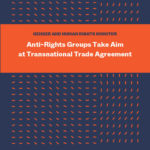
Anti-rights groups and movements are expanding their work into new and seemingly unlikely spaces to impose regressive, fundamentalist Christian views on human rights, family, gender, and sexuality. This briefing paper outlines the activities of three anti-rights groups based in the Global North leading a transnational attack on an economic agreement between the European Union (EU) and its country partners in Africa, the Caribbean and Pacific (ACP) – known as the ACP-EU Partnership Agreement (the Agreement). Christian Council International, Family Watch International, and the Political Network for Values are taking issue with EU efforts to include protective language on human rights, and specifically sexual and reproductive health and rights within the Agreement. While it is unlikely that they will succeed in altogether derailing the Agreement renewal process, the investment of attention, time, and money warrants closer inspection by human rights activists and the media, as well as EU and ACP negotiators, parliamentarians, and other stakeholders.
Safe, high quality abortion services are a critical component of reproductive health care. But what constitutes high quality abortion services? This study describes a process used to create a new, more concise measure of abortion care quality, and an approach to defining and selecting a set of indicators that can be applied in pharmacies, facilities, or with hotlines, and for clients of surgical or medical abortion services in all countries. Keywords: abortion, quality of care, measurement, user-centered design, stakeholder acceptance, Abortion Service Quality (ASQ)
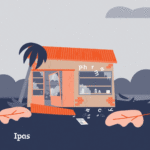
Research findings from Mozambique and Bangladesh
Climate change is now affecting every country on every continent, disrupting national economies and individual lives.
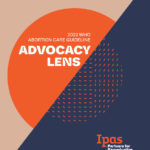
This resource is intended to support advocates who are working to achieve universal access to comprehensive, person-centered abortion care and an enabling environment for people to exercise their sexual and reproductive health and rights.
Ipas, in collaboration with the International Federation of Gynecology and Obstetrics (FIGO) and MSI Reproductive Choices, hosted an event at the margins of the Global Conference on Health and Climate Change.
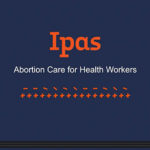
A set of abortion care videos designed to better train health care providers to improve their abortion care and help women safely self-manage their abortion using pills. There are 11 videos for health workers and 3 videos for women. These videos were filmed in facilities in Africa and Asia and are consistent with the latest WHO and Ipas clinical guidance.
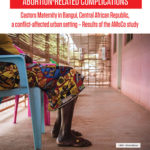
This eight-page brief outlines selected findings from a research project on the burden of abortion-related complications and their contributing factors in the Maternity of Castors in Bangui, Central African Republic. The study found a greater severity of abortion-related complications in this facility compared to African hospitals in stable settings and reinforces the need to recognize abortion as a serious health issue among fragile or crisis-affected populations.
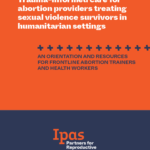

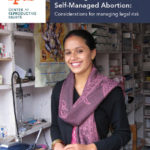
This publication, created by Ipas and the Center for Reproductive Rights, is designed to help individuals and groups consider the potential impact of abortion regulations and offer tools to help assess legal risk when supporting access to self-managed abortion.
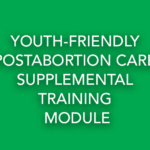
In 2006, the Youth-Friendly Task Force published technical guidance on youth-friendly postabortion care (YFPAC) with recommendations to improve the quality of and access to PAC services for adolescents. To complement the technical guidance on YFPAC and support the implementation of YFPAC, the PAC Consortium has developed this supplemental training module to train health care providers to provide YFPAC services to adolescents.
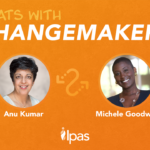
A thought-provoking conversation between Ipas President and CEO Anu Kumar and award-winning author, advocate, professor and social commentator Michele Goodwin.
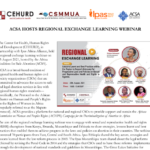
The Center for Health, Human Rights and Development (CEHURD), in partnership with Ipas Africa Alliance, held a regional exchange learning webinar on 25 August 2021, hosted by the Africa Coalition for Safe Abortion (ACSA). ACSA is a broad-based coalition of regional health and human rights civil society organizations that are committed to advocate for access to safe and legal abortion services in line with the Maputo Protocol. This one-page fact sheet outlines the discussion and actions taken during the learning exchange.
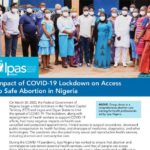
Sexual and reproductive health care is often neglected or difficult to access during a crisis, and this can in turn drive more people to seek unsafe abortions that risk their health and lives. For these reasons, Ipas Nigeria conducted a study to understand the impact of Nigeria’s COVID-19 lockdowns on access to safe abortion. Overall, study findings show that the lockdowns exacerbated the pandemic’s impact on women’s access to safe abortion services.
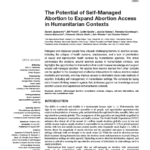
Refugees and displaced people face uniquely challenging barriers to abortion access, including the collapse of health systems, statelessness, and a lack of prioritization of sexual and reproductive health services by humanitarian agencies. In this commentary published in Frontiers in Global Women’s Health, the authors summarize the evidence around abortion access in humanitarian contexts, and highlight the opportunities for interventions that could increase knowledge and support around self-managed abortion.

In 2006, the Youth-Friendly Task Force published technical guidance on youth-friendly postabortion care (YFPAC) with recommendations to improve the quality of and access to PAC services for adolescents. To complement the technical guidance on YFPAC and support the implementation of YFPAC, the PAC Consortium has developed this supplemental training module to train health care providers to provide YFPAC services to adolescents.
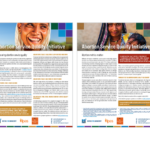
These two fact sheets—Measuring Abortion Service Quality and Abortion Metrics Matter— describe the Abortion Service Quality Initiative’s work to develop a set of common, reliable and evidenced-based metrics to evaluate the quality of abortion care.

In 2006, the Youth-Friendly Task Force published technical guidance on youth-friendly postabortion care (YFPAC) with recommendations to improve the quality of and access to PAC services for adolescents. To complement the technical guidance on YFPAC and support the implementation of YFPAC, the PAC Consortium has developed this supplemental training module to train health care providers to provide YFPAC services to adolescents.
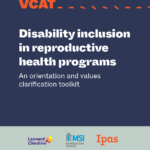
This toolkit provides all the resources needed to plan workshops for organizations that want to build a disability inclusion mindset among their staff and partners who work on abortion and sexual and reproductive health and rights programs.
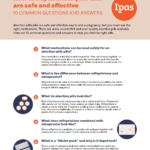
Abortion with pills is a safe and effective way to end a pregnancy, but you must use the right medications. There are many counterfeit and poor-quality abortion pills available. Here are 10 common questions and answers to help you find the right pills.

